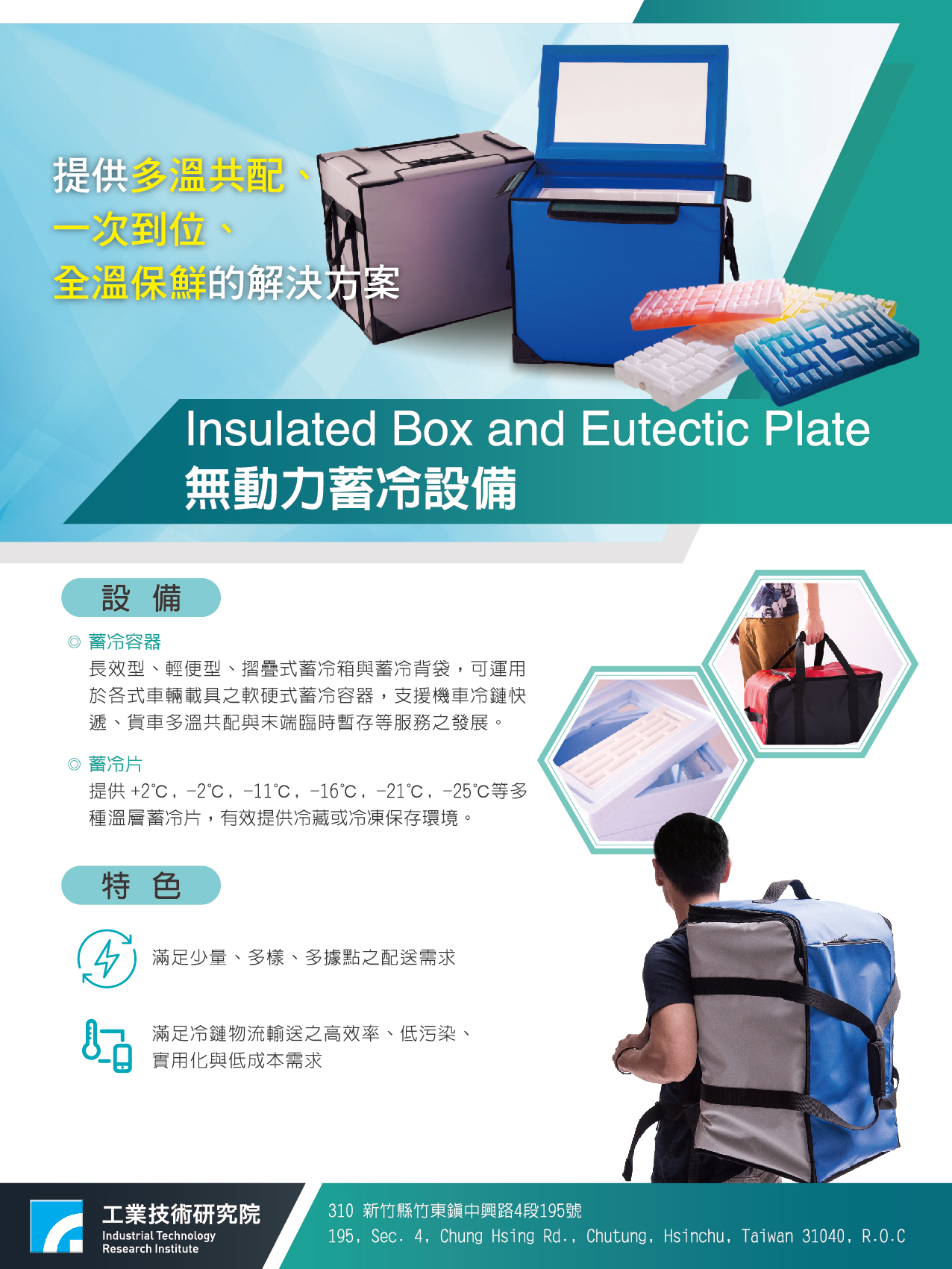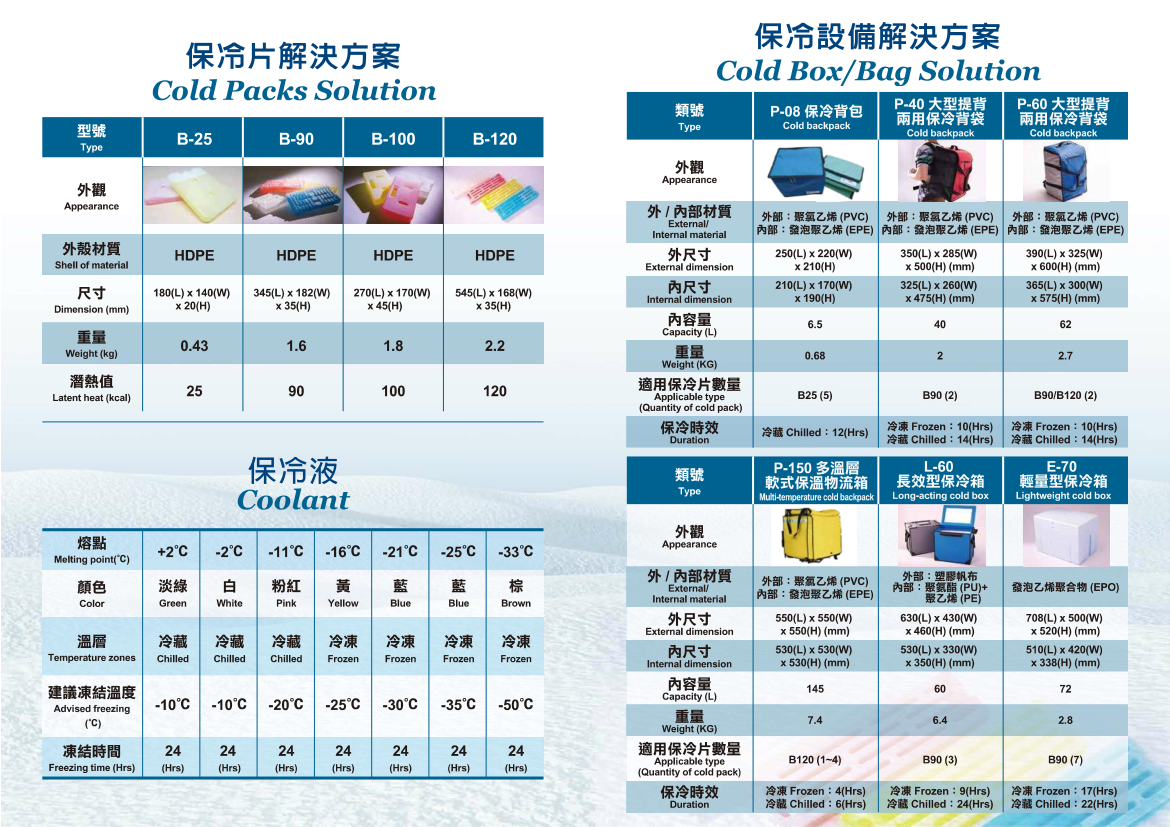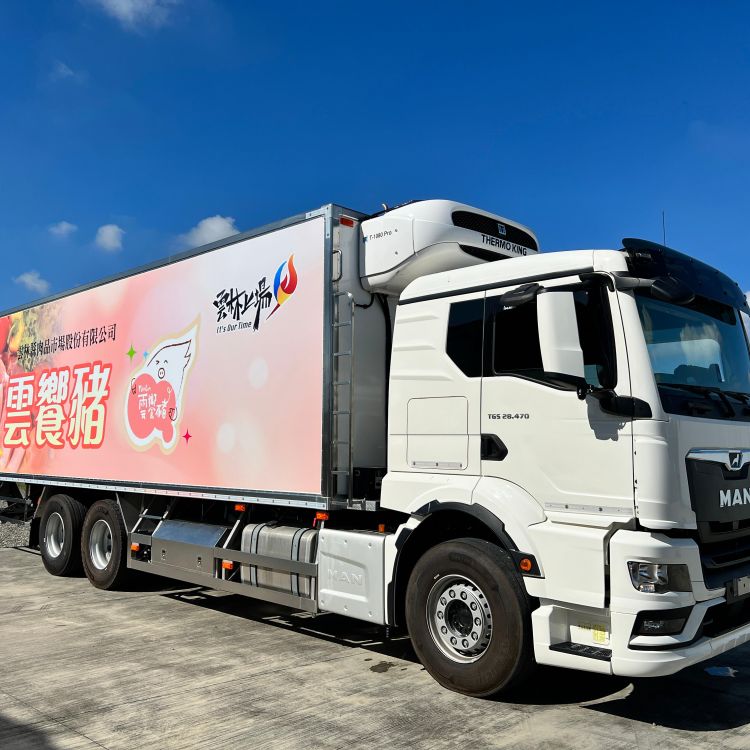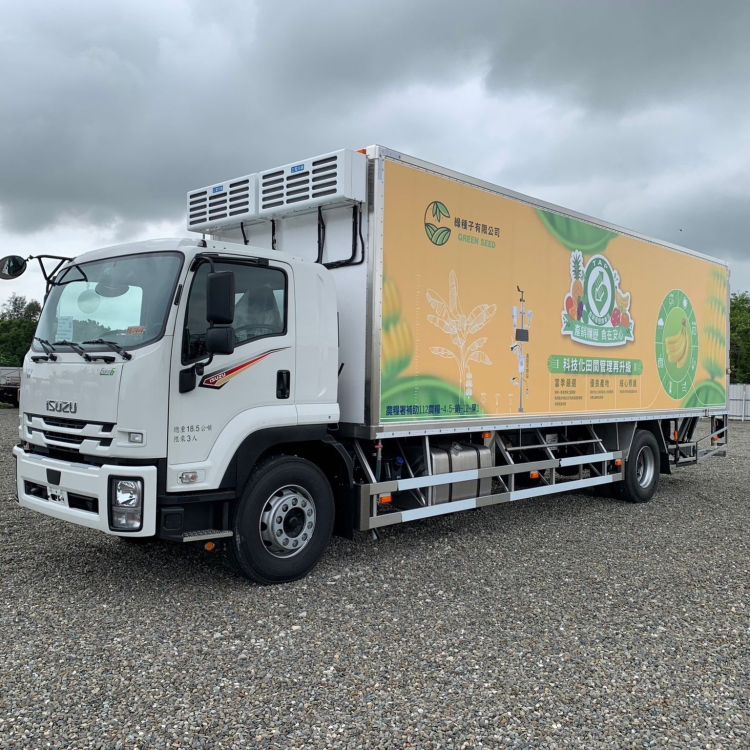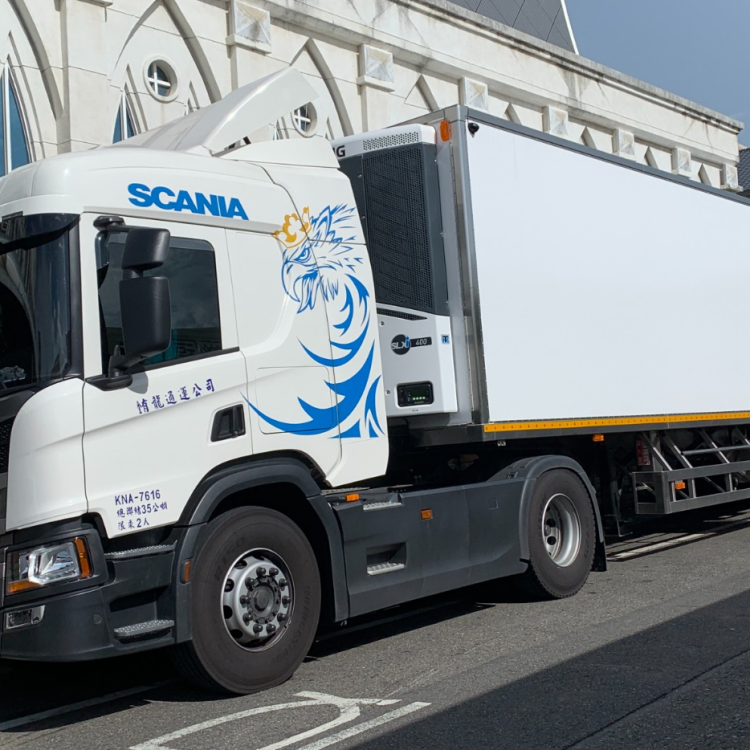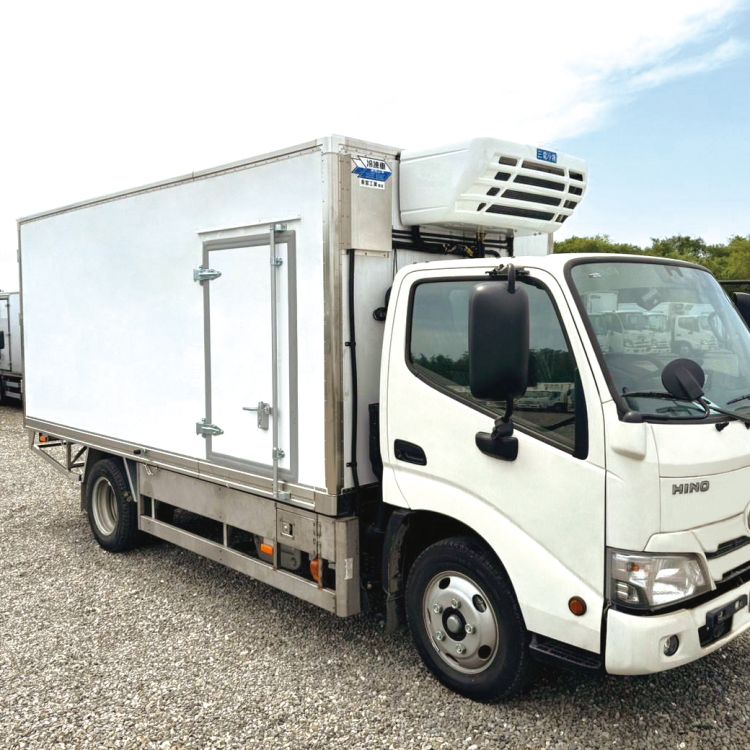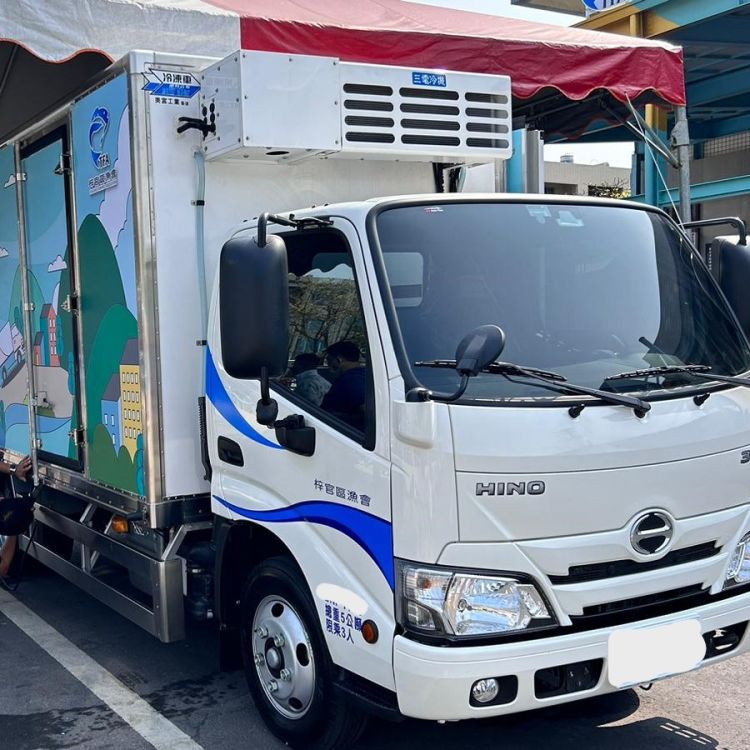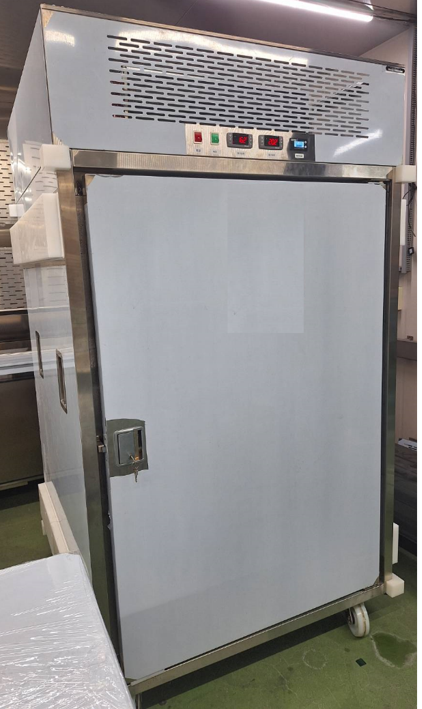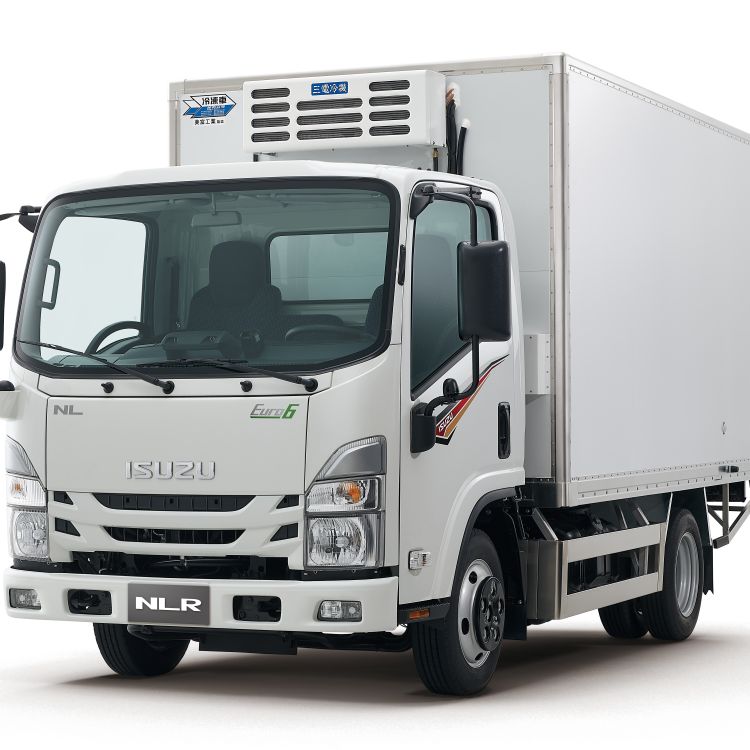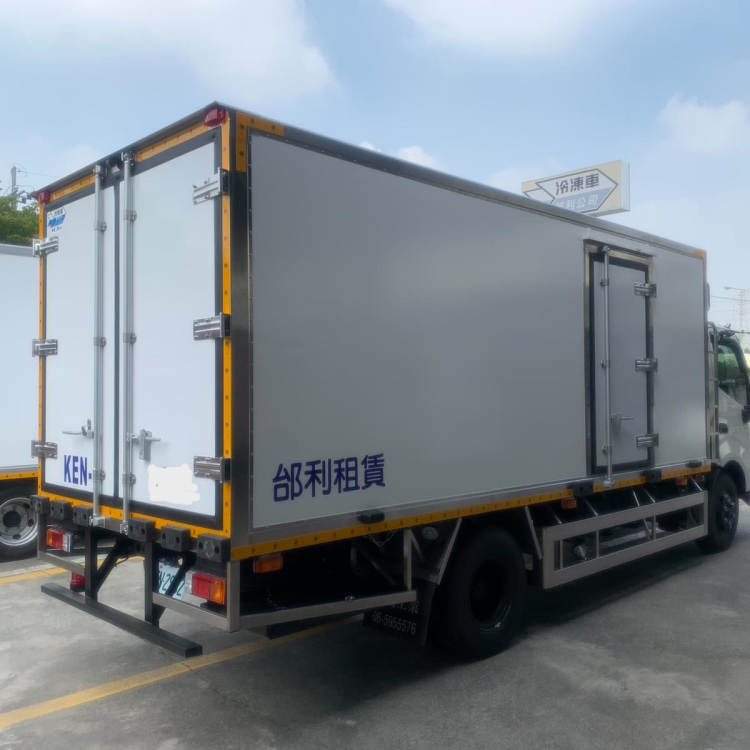ITRI Patented Cold Packs
ITRI has developed an "Energy-saving Cold Storage Equipment" to address the highly sensitive temperature and humidity requirements of biopharmaceuticals and fresh food ingredients during storage and transportation. This equipment offers 8 temperature storage services, capable of maintaining refrigeration for 15 to 48 hours and freezing for 8 to 24 hours without power, providing a comprehensive solution for multi-temperature co-distribution, one-stop delivery, and full-temperature preservation.
To meet the diverse temperature control needs of logistics providers, this equipment operates in an energy-saving mode, facilitating multi-temperature co-distribution and last-mile delivery in the e-commerce era, reducing delivery costs, energy consumption, and carbon emissions.
Over the years, ITRI has developed cold packs with different storage capacities ranging from -2℃ to -25℃. These packs are differentiated by the color of the internal liquid, making it easy for users to manage them according to temperature ranges. Moreover, customized are available to accommodate various application scenarios in the logistics, retail, and storage markets related to cold chain applications for pharmaceuticals, fresh produce, and agricultural products.
To meet the diverse temperature control needs of logistics providers, this equipment operates in an energy-saving mode, facilitating multi-temperature co-distribution and last-mile delivery in the e-commerce era, reducing delivery costs, energy consumption, and carbon emissions.
Over the years, ITRI has developed cold packs with different storage capacities ranging from -2℃ to -25℃. These packs are differentiated by the color of the internal liquid, making it easy for users to manage them according to temperature ranges. Moreover, customized are available to accommodate various application scenarios in the logistics, retail, and storage markets related to cold chain applications for pharmaceuticals, fresh produce, and agricultural products.
- Company NameINDUSTRIAL TECHNOLOGY RESEARCH INSTITUTE
Cold Packs are the crucial core of a full-temperature transport system, maintaining different low-temperature environments by filling them with various cold boxes. These packs undergo "cold storage" using refrigeration equipment (refrigerators or freezers) and, when combined with cold boxes, can function as small freezers without requiring electricity. Logistics providers can transport low-temperature goods using standard ambient temperature trucks without the need to purchase expensive refrigerated vehicles, effectively achieving energy savings and cost reduction.
By maintaining refrigeration for 15 to 48 hours and freezing for 8 to 24 hours without power, these packs can reduce average delivery costs by 25%, as well as decrease energy consumption and carbon emissions by 30%, contributing to a more sustainable logistics operation.
By maintaining refrigeration for 15 to 48 hours and freezing for 8 to 24 hours without power, these packs can reduce average delivery costs by 25%, as well as decrease energy consumption and carbon emissions by 30%, contributing to a more sustainable logistics operation.










